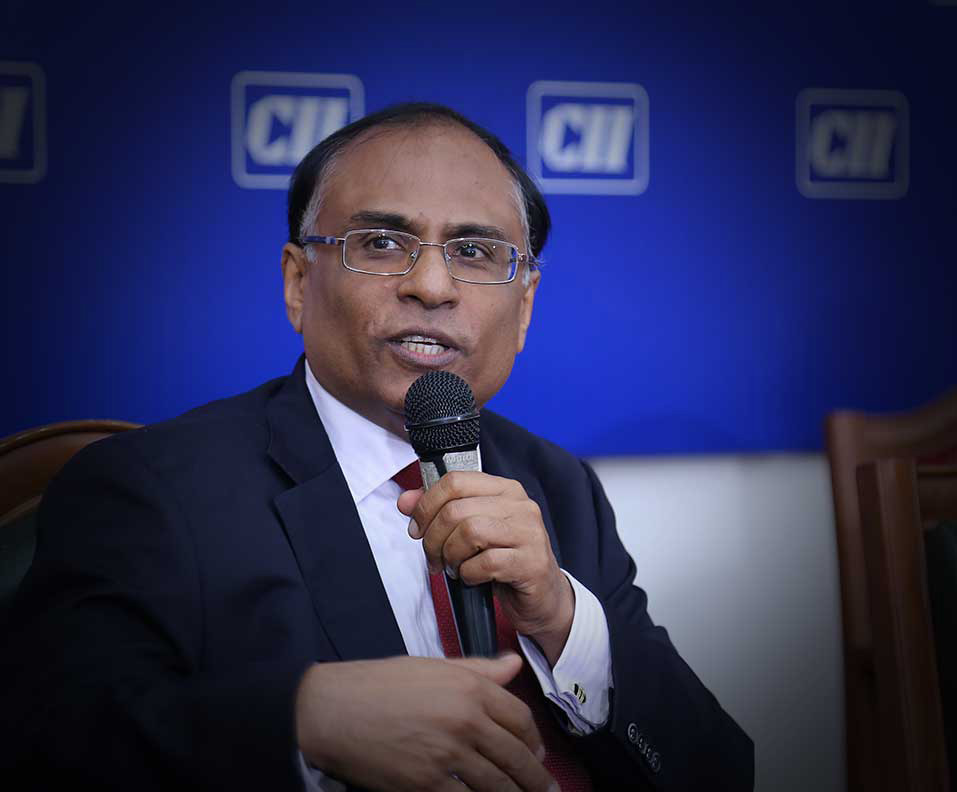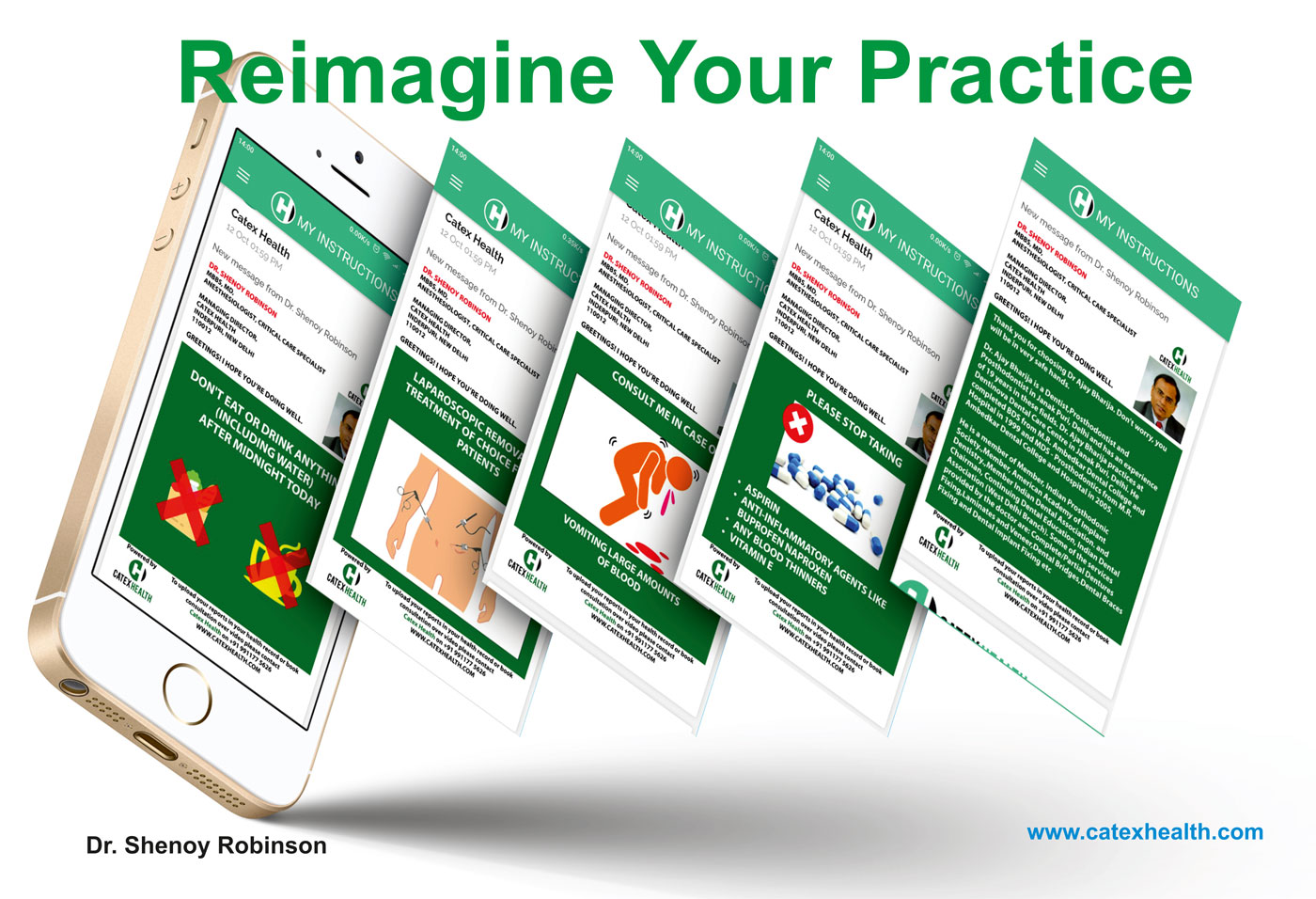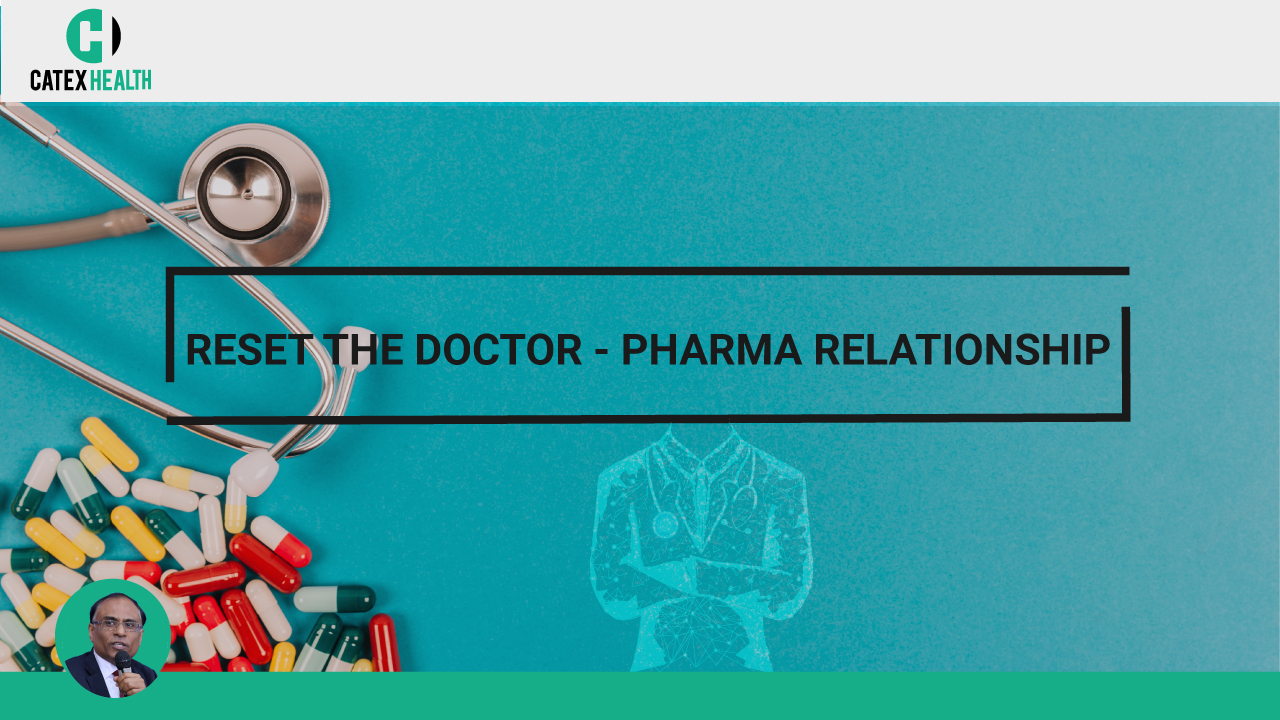In my previous blog we accepted that environment has changed dramatically and we need to change the way we practice medicine in order to make it rewarding and relevant. In this blog we will consider the basics of what the solution should look like.
Transform from an “Episodic” to “Relational” practice
An “Episodic” practice is a mind-set regarding practice that is focused on the here and now. Each encounter with a patient is treated as an isolated one with the underlying assumption that this patient will not necessarily return for another consultation. For Physicians, this approach is antithetical since they deal with an increasing number of Chronically ill patients who require lifelong care.
Contrast this with a “Relational” practice, where once you encounter a patient, the goal is to ensure should ensure that this patient remains under your care for life. This automatically reduces the perpetual craving for new patients and ensures a stable regular income. This is not a new concept. Once upon a time, family physicians were common and would provide this level of service. Unfortunately, it is not possible to give this level of personalised care without the use of technology in today’s world.
A lot of my colleagues will swear by this approach and can testify about their patients’ loyalty. To them I say- Great carry on! But then why the constant desire to acquire new patients? All one needs to do is acquire a specific number of patients in your patient base, factor in a 15 to 20% drop rate balanced with new patients and you are set for life.
For Surgeons, a long-term relationship with a patient is even more critical since patients come to them by either word of mouth or by a physician’s referral. So, a deep long-term relationship with an operated patient can potentially generate huge volume of referrals over time. Every surgeon that I have interacted with, has vociferously affirmed that their satisfied patients have referred many others to their care. Most surgeons try to maintain a long-term relationship with their patients but lack the tools and the know how to do this effectively and systematically.
The core of any relationship lies in the degree and quality of communication present between the parties. When we deal with chronic conditions, effective communication becomes critical.
Presently most doctors communicate with their patients using the following methods(channels):
These channels have drawbacks and flaws that are listed below:
- They are not legal as there is no documented record of the advice given. The Hon Supreme Court has clearly stated that giving advice over phones should be avoided. Remember the operating principle is: “if it is not documented it was not said or done!”
- They are time consuming and at times irritating
- They are episodic and unsystematic
- They are not proactive but a more of a reaction to a patient’s queries
- They are incomplete as they focus on the immediate issue and not on the patient as a whole
- There are no earnings generated from the time spent in this type of communication.
Having established that a rewarding practice needs to be relational and not episodic, let us understand the attributes of a relational practice
A “Relational Practice” has the following attributes:
- There is a long term (preferably lifelong) outlook
- It is based on mutual faith and trust
- It treats the patient as a whole and not just one aspect i.e. the disease
- Its emphasis is on managing the health of the patient holistically
- It involves systematic education on the patients’ disease, life style changes, clinical instructions
- It enables easy tracking of vitals and key health parameters to detect and treat complications promptly
For this we require the following:
- Data base with the clinical record of patients
- Relevant clinical communication based on records available
- Monitoring of key clinical parameters of the patient for regular updates on their health status
- Personalised, meaningful and long-term communication with the patient.
The Solution
Building a relational practice is possible through the use of technology-based services. Technology can equip us to:
- Reach out to patients without physical limitations
- Improve patient compliance and clinical outcomes
- Improve patient satisfaction
- Be legally safe by easy storage of medical records
However, there are many solutions available in the market making it confusing to choose the right one. The following points should be kept in mind while choosing a solution:
CRITERIA FOR CHOOSING THE RIGHT TECHNOLOGY BASED SERVICE SOLUTION
-
It should be simple and easy to use
-
It should provide Clinical services along with non-Clinical services
-
It should be comprehensive and not focused on a particular disease alone. Most chronic ailments have co- morbidities and the solution should be able to handle these
-
It should be customisable to the patients’ health and their medical requirements
-
The provider should preferably be a healthcare company with an understanding and experience of medical practice rather than a pure technology/software provider
To conclude we doctors must adapt and change the ways we are currently practicing to make it more satisfying and rewarding. We need to synchronize our practices in line with the new technologies that are available. It is not difficult just needs a change in the attitude. I would be happy to answer any queries and look forward to suggestions and advice from colleagues.
In case you are looking for a solution that fulfills these needs please register for a personalised demo by clicking on: WWW.CATEXHEALTH.COM#CONTACT





Nicely written thought provoking article Dr Shenoy
One important aspect needs to be addressed is interdoctor relationship
And politicisation of medical profession
Thank you. Very important point.